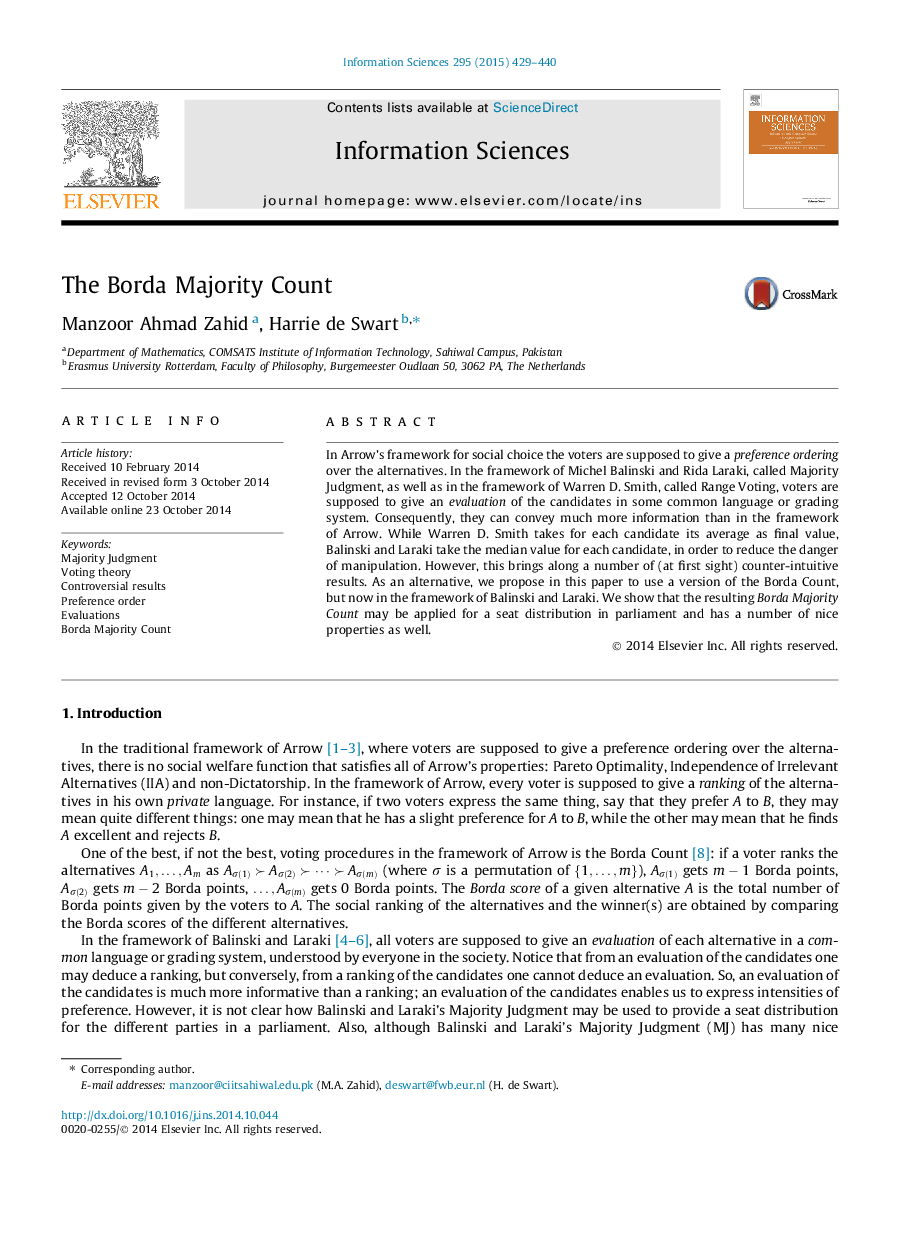| Article ID | Journal | Published Year | Pages | File Type |
|---|---|---|---|---|
| 392181 | Information Sciences | 2015 | 12 Pages |
In Arrow’s framework for social choice the voters are supposed to give a preference ordering over the alternatives. In the framework of Michel Balinski and Rida Laraki, called Majority Judgment, as well as in the framework of Warren D. Smith, called Range Voting, voters are supposed to give an evaluation of the candidates in some common language or grading system. Consequently, they can convey much more information than in the framework of Arrow. While Warren D. Smith takes for each candidate its average as final value, Balinski and Laraki take the median value for each candidate, in order to reduce the danger of manipulation. However, this brings along a number of (at first sight) counter-intuitive results. As an alternative, we propose in this paper to use a version of the Borda Count, but now in the framework of Balinski and Laraki. We show that the resulting Borda Majority Count may be applied for a seat distribution in parliament and has a number of nice properties as well.
